The Complete Guide to Studying International Baccalaureate Diploma Programme (IBDP) in Malaysia
Is IBDP a diploma or pre-university programme? From subjects and requirement to where to study in Malaysia, explore the programme with this quick guide.
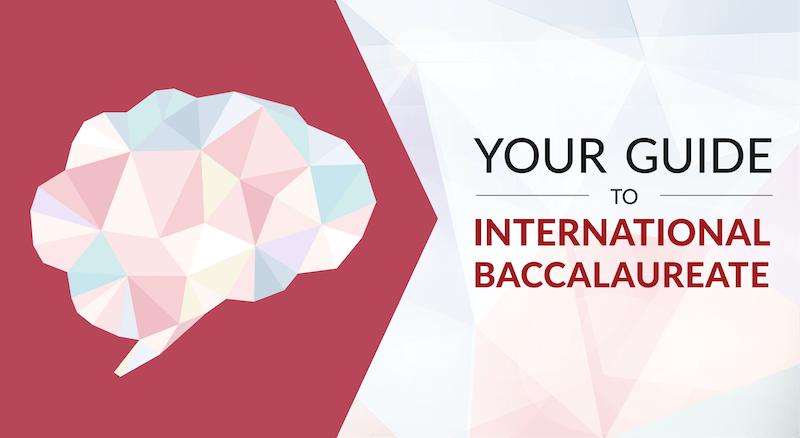
Known as one of the more well-balanced but highly demanding course, the International Baccalaureate (IB) programme is fast gaining recognition by many universities worldwide.
This guide will give you all the information that you need about the IB programme, and why you should (or should not!) choose this over A-Level, the course that IB is most often compared to.
#1. The Basics of International Baccalaureate (IB)
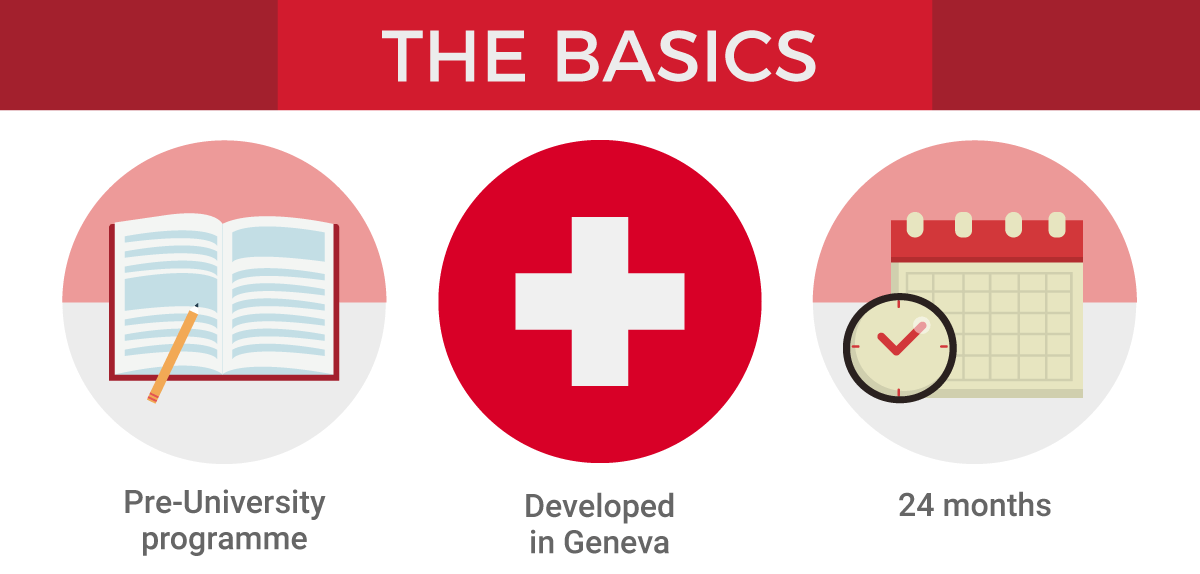
a) What It Is
International Baccalaureate (or its full name, International Baccalaureate Diploma Programme, sometimes known as IBDP or just IB) is a Pre-University programme from Geneva, Switzerland.
It prepares SPM or O-Level leavers for entry into a Degree at university (hence the word, pre).
The course is approximately 24 months long, and is known to be an academically challenging and demanding course, requiring you to take a wide range of subjects across various disciplines.
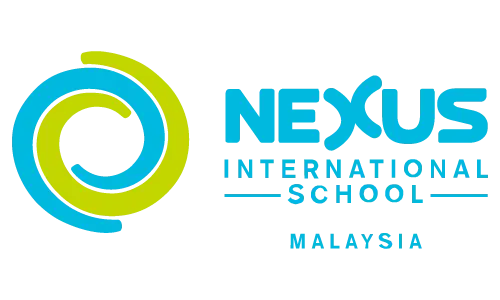
Nexus International School Malaysia
International Baccalaureate Diploma Programme
✓Top 2% Global IB Schools in the World and Top 50 in Asia
#2. How Is IB Structured?
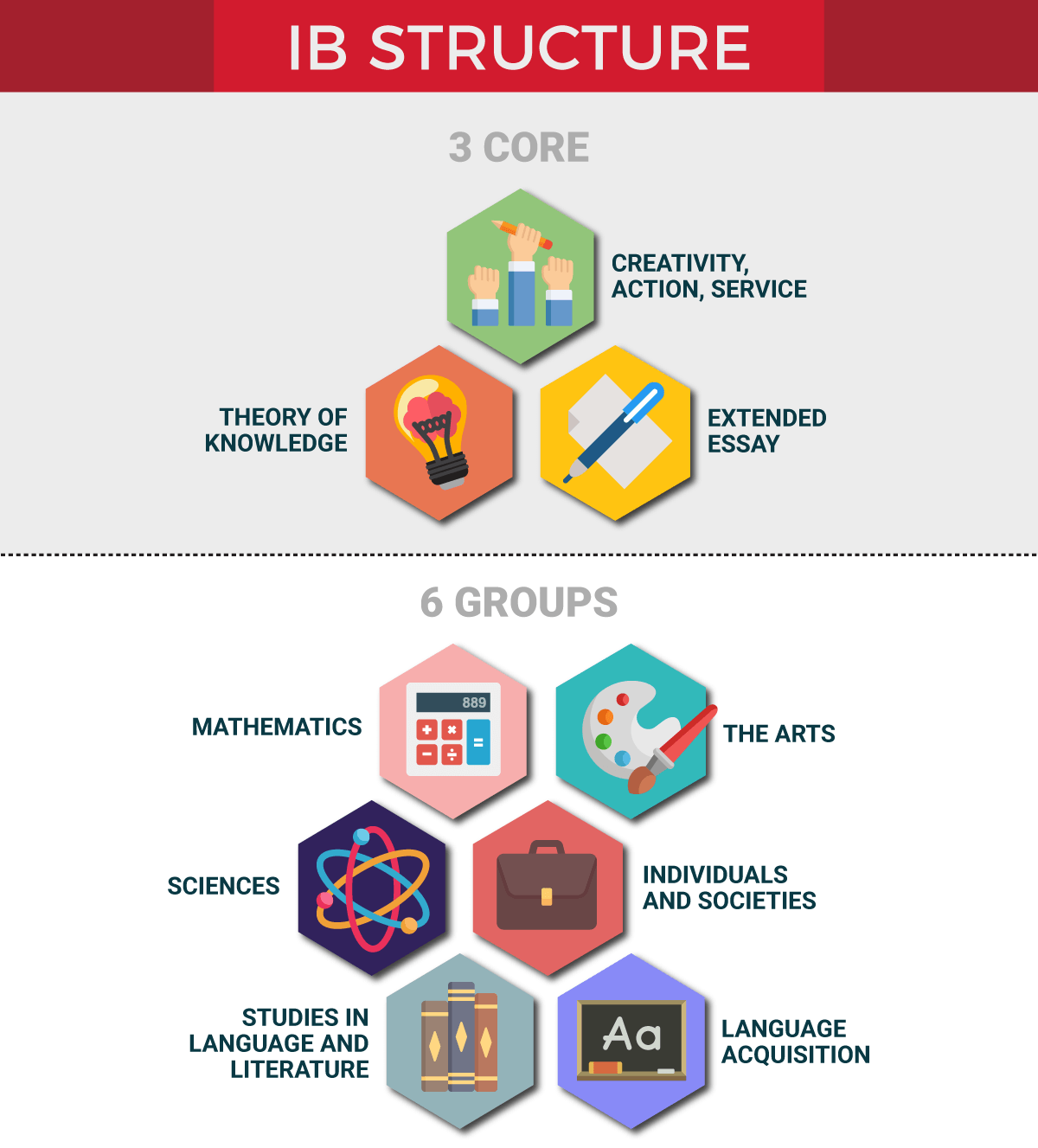
IB is one of the more academically-challenging programmes that is often compared to A-Level, but is viewed as more balanced and well-rounded.
You will take a total of six subjects, one each from the following six broad groups:
- Group 1: Language and Literature (e.g. English)
- Group 2: Language Acquisition (e.g. Spanish, German, French)
- Group 3: Individuals and Societies (e.g. Economics, Geography, History)
- Group 4: Sciences (e.g. Biology, Chemistry, Physics)
- Group 5: Mathematics (e.g. Mathematics, Mathematics Studies)
- Group 6: The Arts (e.g. Music, Theatre Arts, Visual Arts)
Within each of the subject groups above, you have a choice of choosing either Higher Level (HL) or Standard Level (SL). Higher Level (HL) subjects normally require more studying time (total 240 hours of classes) compared to Standard Level (SL) subjects (total 150 hours of classes).
In total, you need to take three subjects at Higher Level (HL), and three at Standard Level (SL).
In addition, you must also complete the following courses, often known as the three core components of the IB programme:
(1) Theory of Knowledge (TOK)
This is an interdisciplinary course, linking all six subject groups. It is intended to promote critical and creative thinking on knowledge gained, both inside and outside of the classroom. You will be assessed based on a 1,200 - 1,600 word essay and presentation.
(2) Extended Essay
This component encourages independent research skills. You will be required to produce a 4,000-word research paper in a topic of your own choice based on any of the IB subjects studied.
(3) Creativity, Action, Service (CAS)
This component teaches you to engage and collaborate with others and the local community through:
- Creativity: Arts, music, writing and other experiences that involve creative thinking
- Action: Physical activities, such as training or learning a new sport
- Service: Unpaid and voluntary work for the community
You are expected to clock in at least 150 hours for projects under this component.

a) How Will You Be Graded?
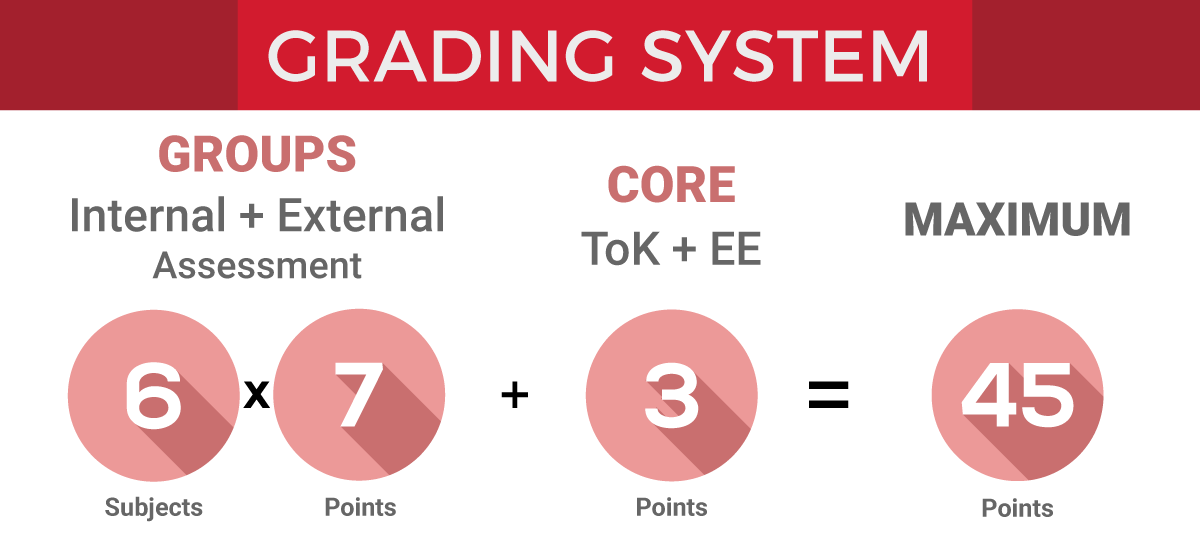
You will be graded on a combination of internal assessment, final exams plus the IB core components.
(1) Internal Assessment: In class throughout the 2 years, you will be required to complete internal assessment tasks (e.g. oral presentations, practical work, written papers), which contribute anywhere between 20% to 50% of your total grades. Internal assessments are marked by your school teachers.
(2) External Assessment: Generally, you will take 2 - 3 papers per subject at the end of the 2-year programme. These examinations are marked by external IB examiners.
Internal and external marks are added together to calculate the final score. The grade awarded for each subject ranges from 1 (lowest) to 7 (highest).
For example, if you achieve the highest score for each subject, your score will be 6 subjects x 7 points per subject = 42 points.
(3) Core Components: In addition, you will also be awarded up to 3 points for your combined results in the Extended Essay and Theory of Knowledge courses. Creativity, Action, Service (CAS) – the remaining element in the IB core – does not contribute to the points, but authenticated participation is required.
This means that the maximum score that you can obtain is 45 points (i.e. 42 points for 6 subjects + 3 points for Core Components).
The IB Diploma is awarded to students who gain at least 24 points of the total 45 points.

Nexus International School Malaysia
International Baccalaureate Diploma Programme
✓Top 2% Global IB Schools in the World and Top 50 in Asia
#3. Why Should You Take IBDP?
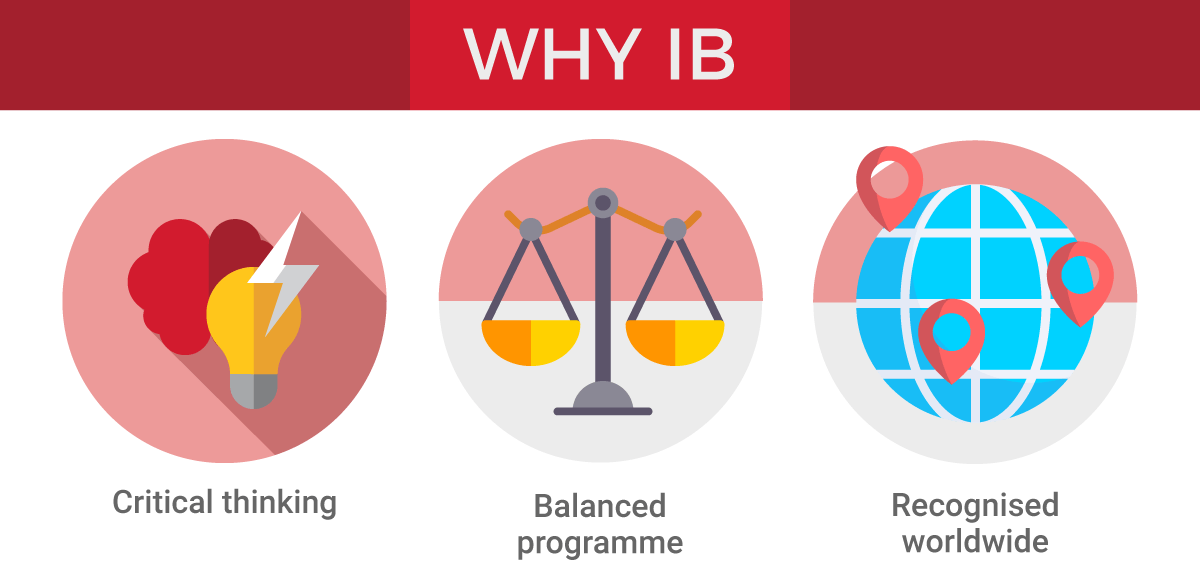
Here are some of the reasons and benefits of taking the International Baccalaureate (IB) programme.
(a) Promotes critical and independent thinking
IB isn't just about passing exams. With its unique Theory of Knowledge component and continuous internal assessment, the IB curriculum will help you grow to be a critical and independent thinker, encouraging you to ask challenging questions and perform research.
(b) Balanced and well-rounded programme
IB requires you to cover a full range of subjects, including foreign language, sciences and art, in addition to creative and physical activities, as well as community service. This will give you a more well-rounded perspective, ensuring that you are active intellectually, physically and emotionally.
(c) Recognised by many universities worldwide
The IB is accepted by over 100 countries worldwide, so you will not have to worry about having an unrecognised qualification once you've completed this course. While universities used to have higher entry requirements for IB, many universities worldwide are now more familiar with this programme, and are making realistic offers to students who choose to take IB.

#4. Who Is IBDP For?
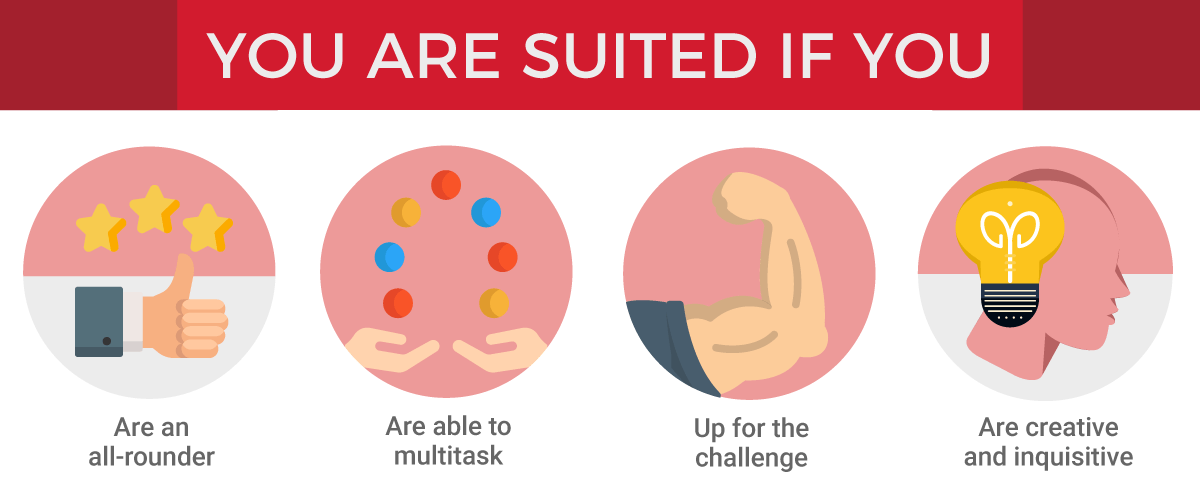
(a) You should consider taking IBDP if:
- You are an all-rounder and enjoy learning subjects across a broad spectrum covering language, arts, science and humanities
- You are able to multitask and manage your time well, juggling academic studies and other activities, such as creative pursuits and community service
- You are prepared to take up a challenging and demanding course
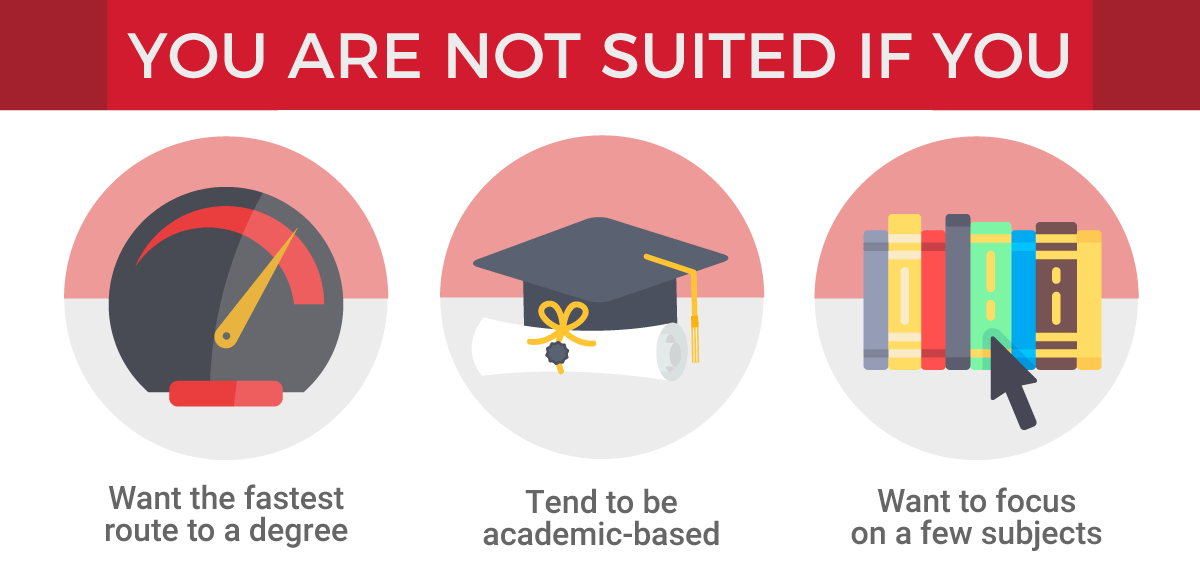
(b) You should NOT take IBDP if:
- You just want the fastest and easiest pathway to a Degree
- You are looking to gain in-depth knowledge and specialise in a few subjects of your interest, as opposed to studying a wide variety of subjects
- You are more academic-based, and prefer not to be assessed on activities outside of academic studies, such as being required to participate in community service and creative activities
Remember that IB is known to be a challenging and demanding programme. In addition to the minimum requirement of 5 credits at SPM or equivalent, you may also be required by some schools to sit for an entrance exam and / or an interview.
Pro Tip
Entry requirements may be higher depending on schools and colleges, so make sure to do your research!

Nexus International School Malaysia
International Baccalaureate Diploma Programme
✓Top 2% Global IB Schools in the World and Top 50 in Asia
#5. What Subjects Should You Choose For IBDP?
The most common subjects that are available at IB programmes in Malaysia are:
| Group | Subjects |
|---|---|
| Language and Literature | English, Malay |
| Language Acquisition | Malay, Mandarin, French, Spanish |
| Individuals and Societies | Geography, History, Economics, Business and Management, Psychology |
| Sciences | Biology, Chemistry, Physics, Environmental Systems & Societies |
| Mathematics | Mathematics, Mathematical Studies |
| The Arts | Visual Arts, Theatre Arts, Music and Film |
Remember that you will be required to take 6 subjects, one from each group. However, for The Arts group, you may opt to study an additional subject under Sciences, Individuals and Societies, or Languages groups, instead of a subject in The Arts.
3 subjects need to be at Higher Level (HL) and another 3 subjects will need to be at Standard Level (SL). HL subjects have more extended syllabi than SL subjects.
As a guide, here are some tips on how to choose your IB subjects:
- For Higher Level subjects, choose subjects that you are good at or have a strong interest in
- For Higher Level subjects, choose subjects that are most related to your university degree. For example, if you want to study Engineering, you should choose Physics HL and Math HL, since certain universities may demand this as an entry requirement
- If you are not interested in The Arts group, you can choose to take an additional Science, Language or Individual & Societies subject that supports your interests and degree choice
- For your Standard Level subjects, you can choose any subject of your choice
PRO TIP
Certain universities have specific requirements on which subjects they require you to take at Higher Level as well as a minimum grade for that subject. Make sure you do your research to ensure that you take the right subjects at Higher Level.
#6. Is IBDP the same as a "Diploma"?
Some students get confused between the IB Diploma Programme (IBDP) and the "Diploma" course that is offered at many institutions in Malaysia, possibly because of the word diploma.
The "Diploma" that is commonly known in Malaysia is a level below an undergraduate degree, and focuses on practical and industry-specific skills and knowledge. Diploma graduates have the option to start working after they complete their studies, or enter Year 2 of a related Degree.
IB graduates, on the other hand, will be required to enter Year 1 of a Degree programme, much like students who have completed A-Level, Australian Matriculation or Foundation studies, since it is considered a Pre-University course.
#7. Where Can You Study IBDP?
The IB programme is only conducted at schools that have been certified by the IB Board. Schools that have been approved to conduct the programme are awarded the IB World School status.
IB programmes are offered at private colleges, international schools and selected MARA colleges.
Interested in pursuing IBDB? Check out some of the best universities offering the programme in Malaysia here.
Nexus International School Malaysia
Putrajaya, Wilayah Persekutuan
International Baccalaureate Diploma Programme
Intake
Aug
Tuition Fees
RM205,980
Get up to RM20,000 waiver + RM300 Rebate when you enrol through EduAdvisor! T&C apply.
